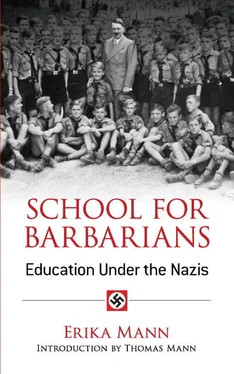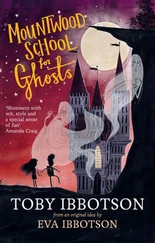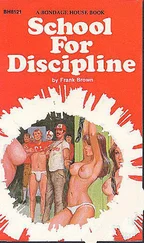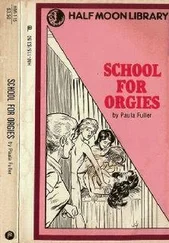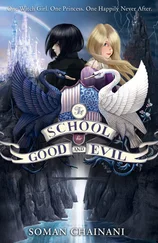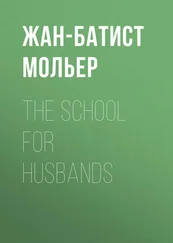“The best milch cows had to be given up, and so there were only a few milch cows left, which meant little milk and that not of the best quality; city children were undernourished, a fact which is still noticeable among many of them….”
It goes on, page after page with no other purpose than to fill little children with hatred for the “enemies of Germany,” who include, aside from the Jews, everyone not in complete accord with the plans and methods of the Führer: the French, English, Catholics, Protestants, Freemasons, Slavs in general, and Russians in particular.
It shows how “Jews, criminals, and international bandits” made a revolution in Germany, and, as late as February, 1933, set fire to “our” Reichstag as a signal for the Communist world revolution. “And there were always more and more people who said: ‘Yes, Hitler is right’ always more, millions and millions. Finally men of the old government said: ‘We are ashamed. We must go!’ Nor did Reich President von Hindenburg like them any more. So he went to Hitler and said to him: ‘You make a government!’ That was on January 30, 1933. Then Hitler became Chancellor.”
But Karl Ruger lies in obedience to orders. Dr. Max Stoll, Oberstudiendirektor, in Munich, described his own methods and recommended them to others in his preface to The Onward March of the German Nation: “It would never have sufficed simply to relate events; every relation must try to give form to the general picture….” And the N.S. Educator publishes a history curriculum which finds it by no means “sufficient merely to relate events.”


A new type of historical instruction, and a particularly fertile field for propaganda, is the “geo-political” course. A textbook by Heinrich Schroder advocates the innovation, which will soon be generally established.
Classes are conducted as follows: a pupil is asked what he considers a “rightful battle for a common Reich,” and a little girl volunteers: “My conscience tells me what to do.”
The boy is more precise: “We must help provide bread for the unemployed, and we must get rid of the Jews. Wherever one hundred Jews are employed, there is work for only twelve Germans.” (Whatever that means….)
When the teacher invites the class to consider the German-speaking people abroad ( Auslandsdeutsche ), these are the answers he wants:
“We must help the Germans in Russia.”
“We must write to Germans abroad that they must not surrender their blood” (i.e., mix with non-Germans and so become less German).
“First we must fight to make Germany strong; and then we must come to the assistance of Germans abroad.”
The following conversation, quoted verbatim, is the clue to what Schröder and other educators mean when they speak of helping Germans abroad:
TEACHER: Our people have one blood and one language; but they lack one thing.
FRITZ: The German people have no common country.
RUDI: Adolf Hitler says that one blood belongs to one land.
ANNELIESE: We say this, but we can do nothing about it.
TEACHER: Then all Germans will never be able to live in one country?
MARIECHEN: The time must come.
RUDI: But the Führer cannot accomplish this alone. We must all help him.
TEACHER: Are you all helping him?
RUDI: I am helping by being a member of the Jungvolk and by fighting for Germany.
FRITZ: In my brown shirt I am fighting for Germany.
KARL: I have written letters to America to counteract the propaganda of the Jews who accuse us of perpetrating atrocities.
FRITZ: I have written letters to Danzig; and in my letters to Canada I have valiantly fought with my pen.
TEACHER: That is good. And I gather that our ultimate aim is clear to us all.
FRITZ: Our aim is one strong and unified Germany for all the Germans in the world.
TEACHER: Rudi has already quoted the significant words of our Fiihrer; we all utter these words reverently: “One blood belongs to one land!” Let us close the lesson by singing the Horst Wessel song.
Horst Wessel, a national hero in the new Germany, was the son of a North German pastor, a chaplain during the War, This man, whose name-song is the national anthem now, was always fond of playing soldiers, of handling daggers and revolvers; his intelligence was definitely below normal, and he never could find his way into a civil profession. Still at school age, he joined one of the quasi-military organizations which were springing up, German nationalist in character, and composed of young men with nothing better to do who gathered in the hope that the War might yet be won. Horst Wessel became the leader of a group called Crown Princess, affiliated with the rather childish Bismarck Bund. It was not long before he was joining more sinister groups, the Viking, the infamous Organization Consul, and finally the Black Reichswehr.
Many of the members had come back from the War desperate, de^ feated soldiers, completely lost in civilian life. Some went to Silesia or the Baltic region in the hope of rescuing lost German territory; but Horst Wessel, who had been too young to go to war, was never more than an adventurous loafer. The organizations, moreover, were losing their purely nationalist character and degenerating into bands of terrorists.
The National Socialist movement, in its attempt to gather power, gathered in the debris of these Freikorps, becoming their successor; Horst Wessel became a Nazi. To appease his relatives and the world in general, he decided to attend a university; but he never was even a Bummel student (a chronic student, behaving as though the academic life were a profession), for he hardly set eyes on a university. He was living in one of the most disreputable sections of Berlin, and engaging in a more remunerative profession. The pastor’s son was living with a notorious whore, and earning money as procurer. But the Nazis made sure that he would not forget his appetite for playing soldier. While his mistress was making money, he was breaking up meetings and taking part in the bloody street fights between workers and Nazi toughs that were then so common. During one of those brawls, Horst Wessel was killed.
He had never worked in his life. He had been a degenerate who never accomplished a thing that can be counted in his favor. But he has become the national hero of Germany, and his song, Die Fahne Hoch (Up with the Flag) the national hymn.
It is one of the shabbiest works ever to reach fame; lacking talent and craft, its brutal, bombastic text is set to a melody full of mistakes — a melody Horst Wessel had stolen, which does not even coincide with the limping rhythm of the verse. Two high legal courts handed down, as late as 1937, an astonishing decision based on the authoritative verdict of musical experts of the Sachverständige Kammer für Werke der Tonkunst. It settled a suit between two music publishers, and is as follows:
“As far back as 1900, there was a popular song called Sea Voyage to Africa (beginning, ‘Once I lived in the German fatherland’), whose first line, with only a slight alteration in the sequence of notes, and minor differences in rhythm, has exactly the same melody as that of the first two lines of the Horst Wessel song. The third line and the beginning of the fourth of this song, almost bar for bar, can be found in the still older song The Fisher and his Love (beginning, ‘I am but a poor fisher-lad’). The closing bars of the Horst Wessel song correspond to the end of the second line of the Storndorfer folk song, There was a man who wanted to go home, which was, again, sung to almost the same melody in Westphalia, in the song, Sea Voyage to Africa. ”
Читать дальше
